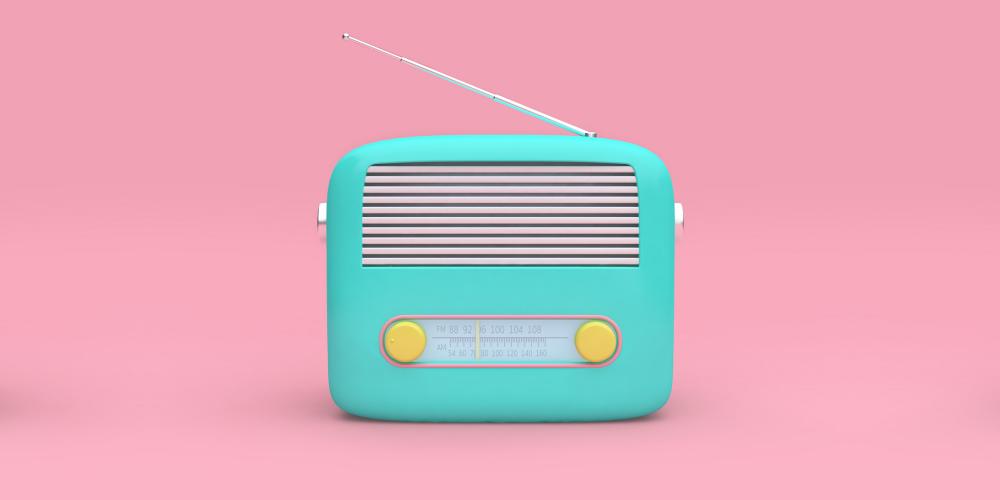
Sarah’s Health Notes: Music And Memories
Music is one of the most powerful ways of bringing joy and calm to people with dementia and a new free radio station m4dradio.com, from the wonderful charity Music for Dementia, tailors tunes to different musical decades.
I’m sitting at my desk swaying and tapping my feet and belting out Na Na Hey Hey Goodbye (written by Steam) and any moment it’s going to be Rod Stewart and Maggie May – and here it is! My rock chick soul is pretty blissed out. And I can’t type cos I’m clapping….
Okay, so m4dradio.com is not really targeted at me but I am so enjoying it. Put simply, m4d radio plays music that evokes memories. This group of five themed radio stations, available free 24/7, was set up by Music for Dementia, which is right at the top of my list of favourite charities. (Pause to clap along with Rod …)
Musical memories are typically laid down from our early teens through to our late twenties. On the m4dradio home page, you choose the decade you were born in to replay those tunes: so I’m now listening to Frank Ifield and Wayward Wind. (Swaying again… it’s a swayward wind down here…good exercise writing this article.)
I could go back to the 1930s and 1940s, forward to the 50s, 60’s and 70s or opt for The m4d Mix – and Wow! Now it’s Hot Stuff from Donna Summer.
Okay, you get the picture. M4d radio is part of the Music for Dementia campaign to make music accessible for everyone living with dementia, and an automatic part of care. I met the founder Neil Utley and music director Grace Meadows when the charity launched. ‘Music can bring a person back to life,’ Neil said. ‘The ability to connect to music is an innate aspect of being human; a diagnosis of dementia need not undermine this.’
Having seen the effect of music on dementia sufferers like my father (and also on some stroke patients), I feel passionately about its importance. Not only does playing music simply give pleasure – which in the often bleak world of dementia is hugely important, it connects people in a way that doesn't demand or need words – which are often beyond the reach of people with this condition. It also helps reduce some of the distressing symptoms of the illness, such as agitation, apathy and anxiety – which has been proven by research.
Here’s what I wrote after visiting a Singing for the Brain group in Bridport some years ago. ‘I can still see the 1,000-watt smile lighting the face of one woman when her husband who had Alzheimer’s pulled her up to dance. “Usually this awful disease leaves him moody because he can’t communicate or do much,” she told me. “But these sessions spark happiness that triggers his memory. He was trying to tell me the music reminded him how we used to jive in the old days.” That still gives me goose bumps.
Scientists have found an underlying mechanism that explains some of the powerful effect of music in this context. Despite the damage to the brain with Alzheimer’s disease and other dementias (also some strokes), areas of the brain associated with musical memory seem to be spared. Music has its own pathway, which is still clear. So, even in advanced cases, many people are still able to sing and enjoy music, which may also help their memory – as well as giving them joy.
There you go – I’m swaying again… It’s A Hard Day’s Night and yes, I do know money can’t buy me love… But m4d radio can give many people hours of pleasure. So go on: turn on, tune in, and start swaying…
DISCLAIMER: The views, opinions and information expressed in this article and on Victoriahealth.com Ltd are those of the author(s) in an editorial context. Victoriahealth.com Ltd cannot be held responsible for any errors or for any consequences arising from the use of the information contained in this editorial or anywhere else on the site. Every effort is made by the editorial and content team to see that no inaccurate or misleading information, opinion or statement appear, nor replace or constitute endorsement from medical bodies or trials unless specified. Victoriahealth.com Ltd accept no liability for the consequences of any inaccurate or misleading data, information, opinion or statement. Information on Victoriahealth.com Ltd and in the editorials is provided for informational purposes only and is not intended as a substitute for the advice provided by your physician or other healthcare professional. You should not use the information on this website or in the editorials for diagnosing or treating a health concern or disease, or for the replacement of prescription medication or other treatment.